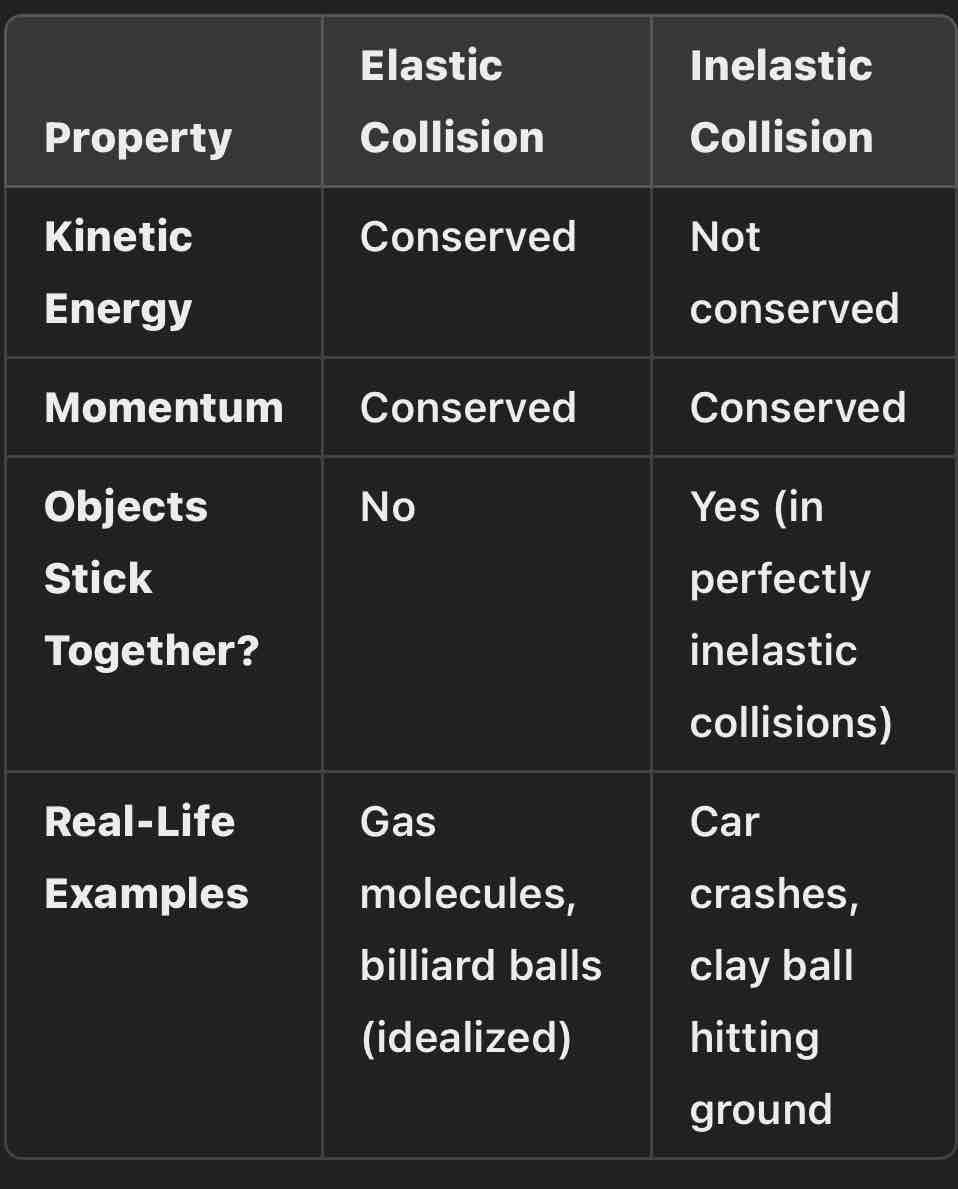ap physics unit 3
1/17
Earn XP
Description and Tags
Ap physics notes
Name | Mastery | Learn | Test | Matching | Spaced | Call with Kai |
|---|
No analytics yet
Send a link to your students to track their progress
18 Terms
The “effort” of a displacement caused by a force/measure of energy transfered
Work
work formula when displacement is over an angle
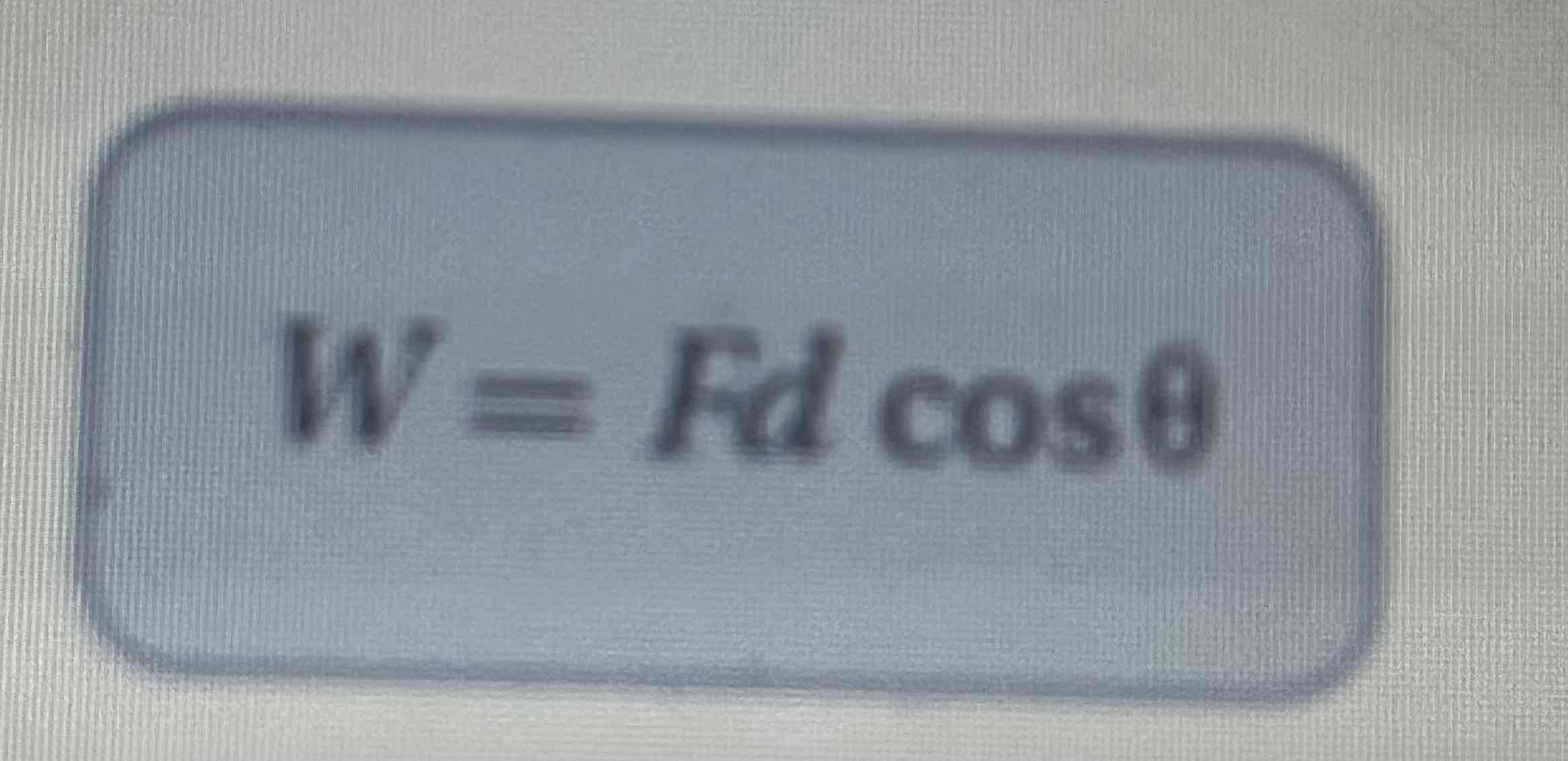
Work formula when displacement and force are same direction

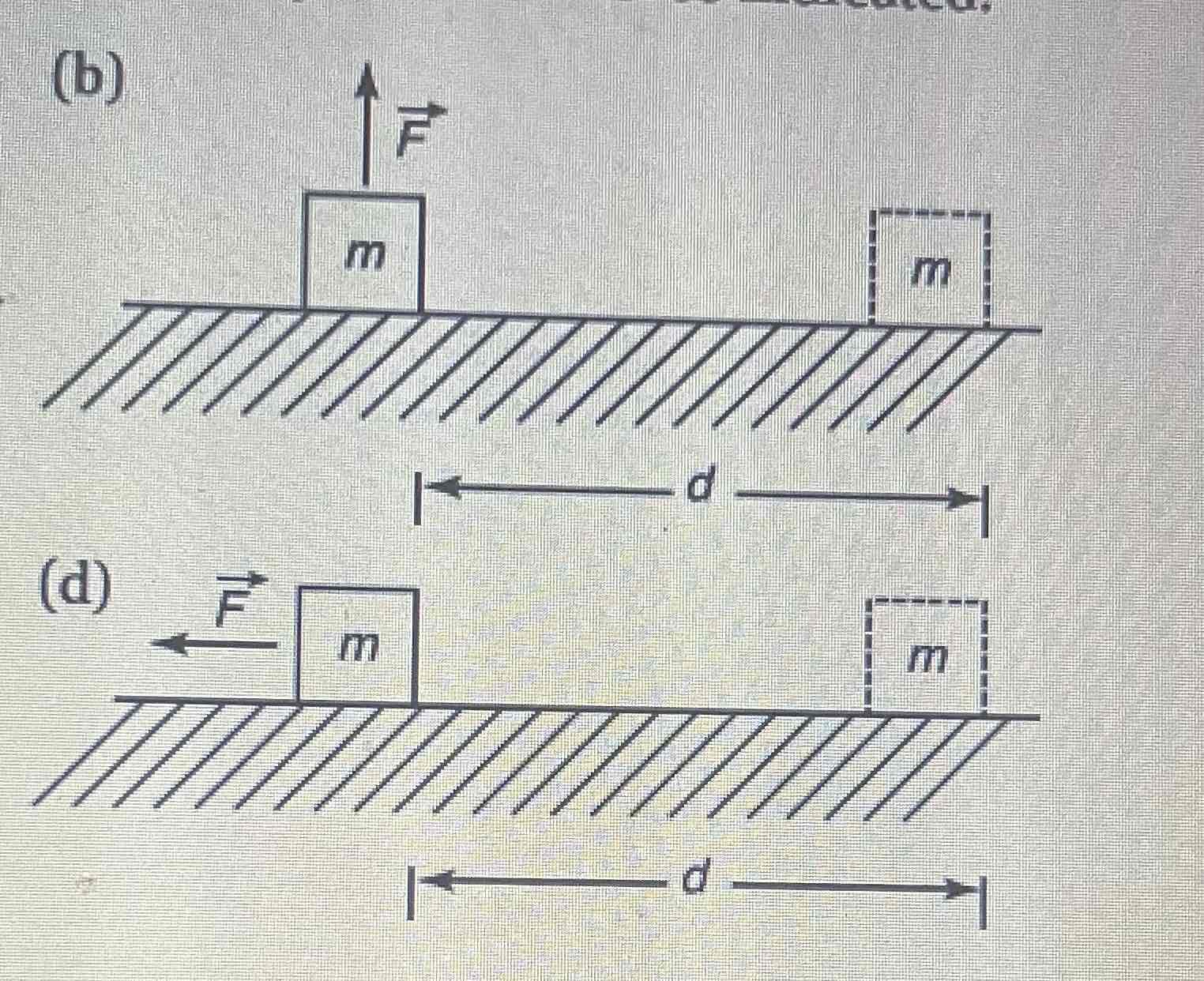
Force is not in same direction as displacement ?
Then we use fd(cos theta), theta will be the angle force is from displacement. In (B), the force is at 90 degree right angle to displacement while in D, the force is 180, the completely opposite direction.
A force and a disappacement happening does not mean…
There is work. If object's displacement is different from the force, no energy was put into the displacement by the force.
Negative work??
Flow of energy is reversed. Energy is transformed from mass to the force source. Ex: friction!
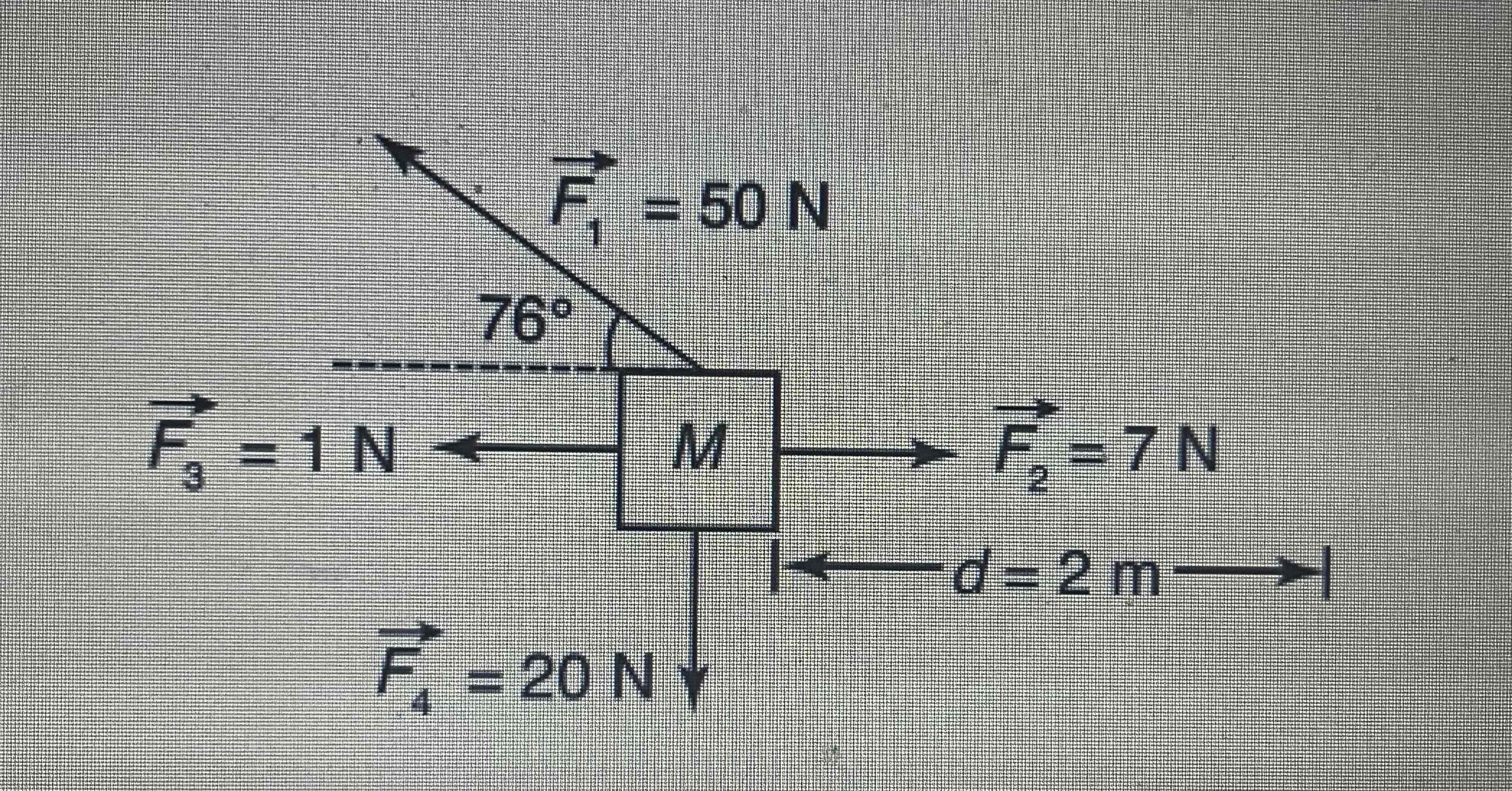
How to find net work?
Add up all the individuals works. For F1, its theta should be 180-76 since its 76 is away from the displacement!
The rate of work done in a time frame is
Power (watts)
1 Watts = 1 joule
Power formula when you have constant velocity and force?
What if they're not in same direction?
P=Fv
If not same direction, account for the angle between them

Other power formulas ?
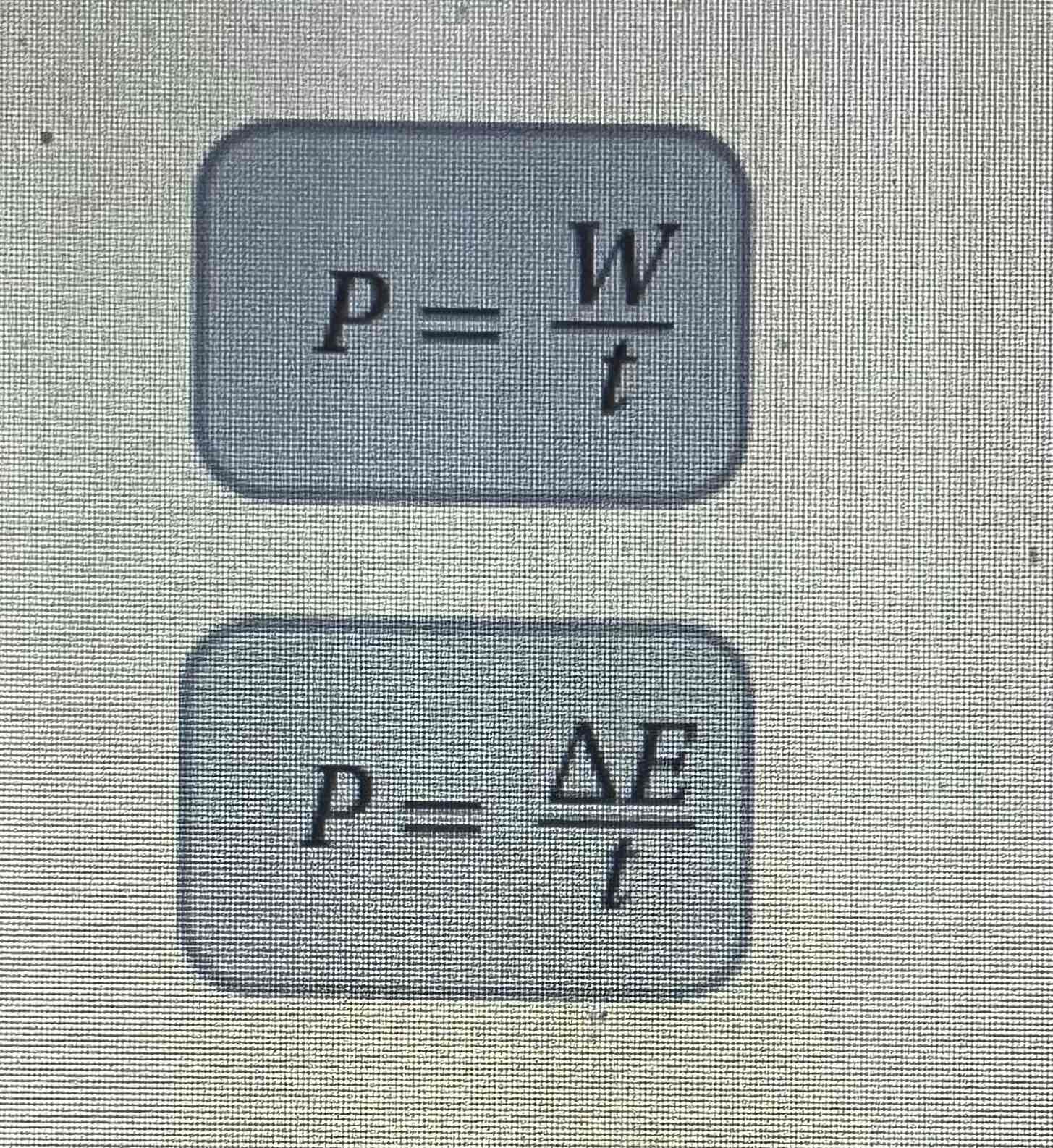
Negative power?
The object is losing energy rather then gaining!
Energy of motion and its formula?
Kinetic energy
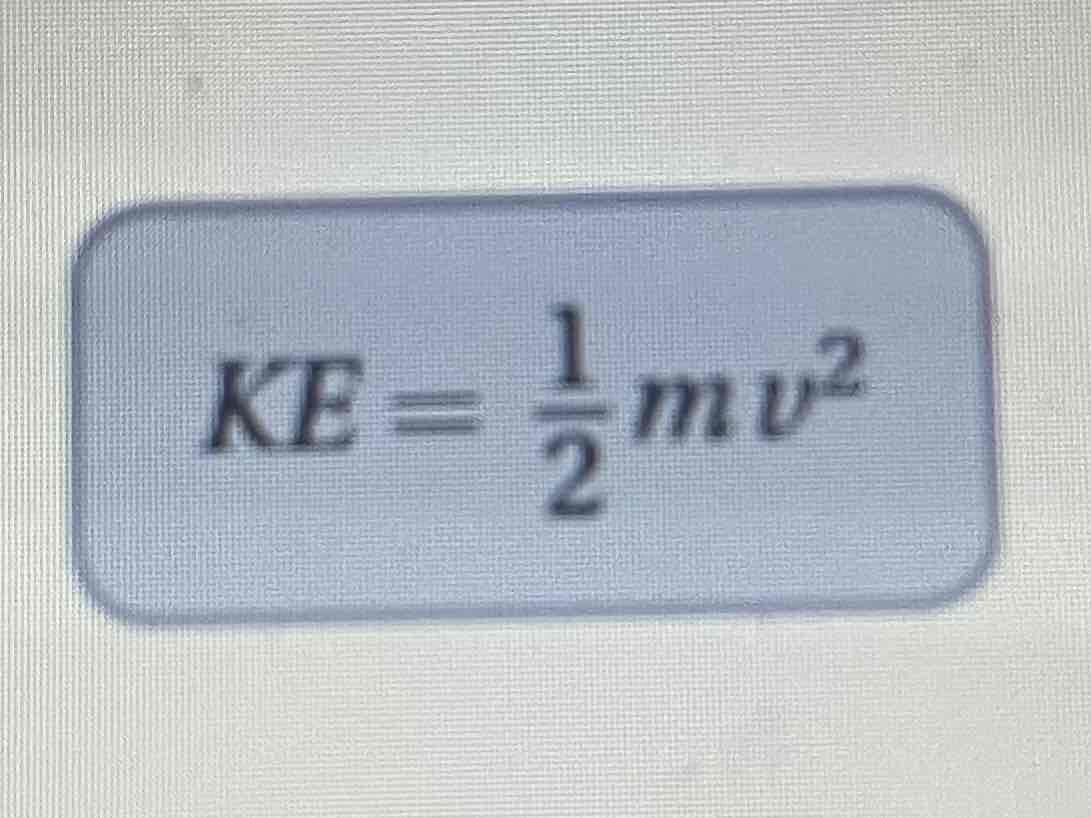
Work energy theorem??
Work is equal to the change of kinetic energy because work is the transfer of energy when force acts on displacement, thus it'll equal to change of energy!
If object speeds up, more work is being done, this it was a increase in kenetic energy aswell. Same way if object slows down= work decrease; kinetic energy decreases.

Potential energy ?
Energy is stored in the system. Forces associated with potential energy conservative forces (gravity, elastic, electric.)

Elastic potential energy?
The more a string is compressed or stretched away, greater the potential energy
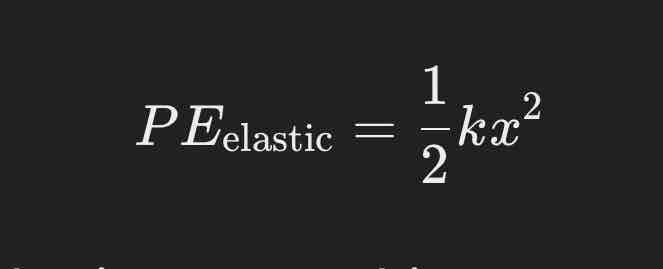
Law of Conservative energy
Initial mechanic energy (PE + KE) must equal final mechanic energy
Note: in conversion problems, mass cancels out

Elastic collision vs inelastic collision?
